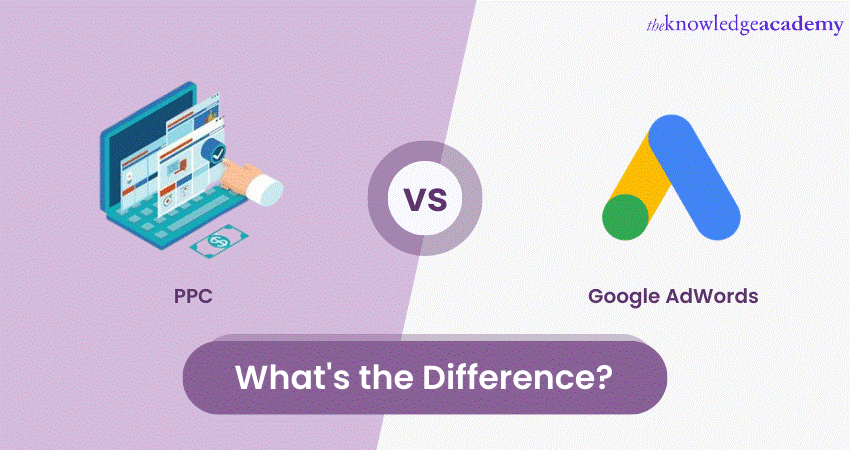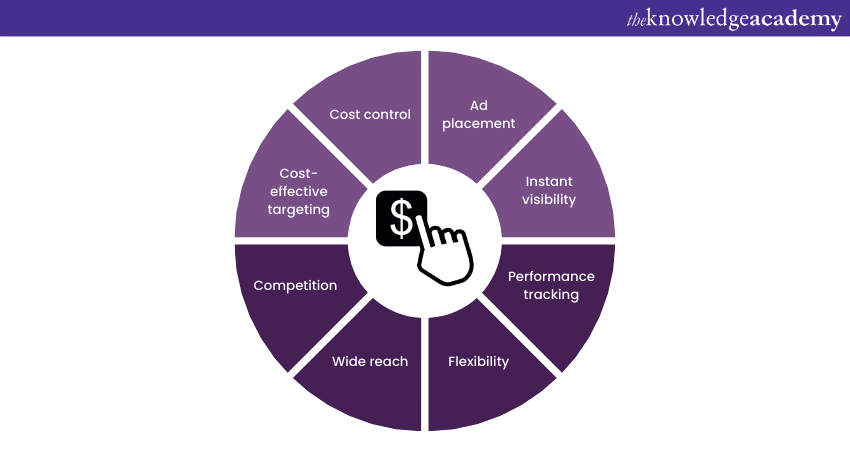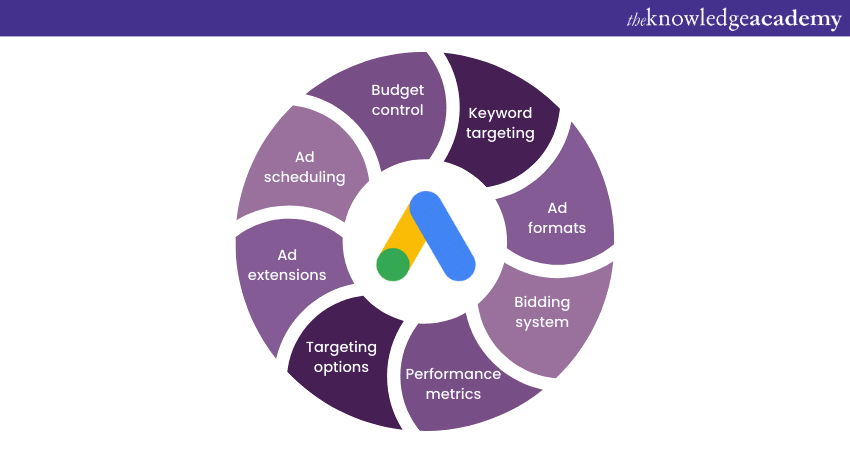We may not have the course you’re looking for. If you enquire or give us a call on 01344203999 and speak to our training experts, we may still be able to help with your training requirements.
We ensure quality, budget-alignment, and timely delivery by our expert instructors.

PPC (Pay Per Click) and Google AdWords are two digital advertising platforms that businesses can utilise to manage their targeted online ad campaigns across various platforms. Businesses should have a comprehensive understanding of PPC and Google AdWords to conduct successful outreaches to their target audience.
Ad spending is projected to reach about 220 billion GBP in 2023, according to Statista’s 2023 Search Advertising market insights. An effective outreach helps increase their brand’s visibility and drive relevant traffic to their websites. PPC and Google AdWords offer businesses a highly efficient and cost-effective way to advertise online. Continue reading below to find out more!
Table of Contents
1) Overview of PPC
2) Overview of Google AdWords
3) Difference Between PPC and Google AdWords
4) Conclusion
Overview of PPC
PPC, an acronym for ‘Pay Per Click’, is a powerful model for digital advertising, where businesses pay a fee for every time their ad is clicked by a user. It is a means for businesses to buy visits to their website instead of learning them organically. Here is a list of briefly explained elements of the PPC model:

1) Cost control: PPC gives advertisers control over their budget and lets them set a maximum bid for each click. The big range allows for better cost management and ensures that advertisers only pay when someone clicks on their ad.
2) Ad placement: PPC ads are displayed on the Search Engine Results Pages (SERPs) or websites that have opted to show ads. Advertisers can choose specific keywords or demographics to target their ads to a relevant audience.
3) Instant visibility: Unlike organic search results, PPC ads provide immediate visibility for businesses. Once the campaign is set up and approved, ads start appearing on search engine results pages, driving traffic to the website.
Take your Google Ads knowledge to the next level! Download the Comprehensive Google Ads Guide and explore proven tactics to maximize your ad spend.
4) Performance tracking: PPC platforms offer robust tracking and reporting tools, using which advertisers can measure the performance of their campaigns. They can track metrics like impressions, clicks, conversions, and Return on Investment (ROI) to evaluate the effectiveness of their ads.
5) Flexibility: PPC campaigns can be adjusted and optimised in real-time based on performance data. Advertisers can modify keywords, ad copy, and targeting parameters to improve the campaign's results and reach their advertising goals.
6) Wide reach: PPC platforms, like Google AdWords, have a vast network of partner websites and search engines, giving advertisers access to a broad audience and potential customers.
7) Competition: PPC advertising can be competitive, as advertisers bid against each other for ad placements. The cost per click (CPC) may differ depending on the competitiveness of the keywords and the industry.
8) Cost-effective targeting: PPC allows advertisers to target specific demographics, locations, and interests, ensuring their ads are shown to the intended audience and increasing the chances of conversions.

Overview of Google AdWords
Google AdWords, now known as Google Ads, is a comprehensive online advertising platform. The platform helps businesses to create and manage targeted ad campaigns across various Google platforms, including Google Search, YouTube, and partner websites. When comparing Google Ads vs AdSense, Google Ads is primarily designed for advertisers who want to promote their products or services, whereas AdSense allows website owners to generate revenue by displaying ads from Google's network on their sites.
Below is a brief list of elements of Google AdWords, which enables businesses to reach their desired audience, drive website traffic, and achieve their advertising goals effectively:
Interested in learnong in-depth about SEO and PPC , refer to our blog on "SEO vs PPC"

a) Keyword targeting: Advertisers can select the keywords relevant to their business services, and their ads will appear when their target users search for those keywords on Google. The targeting ensures that their ads are shown to users actively searching for information or products related to the advertiser's offerings.
b) Ad formats: Google AdWords offers various ad formats, including text ads, image ads, video ads, and responsive ads. This flexibility allows advertisers to create visually engaging ads tailored to their target audience and the platform they are displayed 2on.
c) Bidding system: Advertisers bid for ad placements based on their chosen keywords. The bidding system determines the ad's position on the search results page or the frequency of its display on partner websites. Advertisers can fix a maximum bid for each click or set a budget for daily ad spend.
d) Performance metrics: Google AdWords provides detailed performance metrics and reporting tools. Advertisers can track impressions, clicks, conversions, click-through rates (CTRs), and other Key Performance Indicators (KPIs) to measure the effectiveness of their business campaigns and optimise their ads accordingly.
e) Targeting options: Advertisers can target their ads depending on factors such as location, language, demographics, interests, and device types. This precise targeting ensures that ads are shown to the most relevant audience, maximising the chances of conversions.
Need to boost your conversions and revenue, refer to our blog on "How to improve PPC performance"
f) AD Extension
g) Ad scheduling: Advertisers can schedule their ads to appear at specific times and days of the week. This feature allows businesses to target their audience during peak hours or specific periods when their target customers are more likely to be online.
h) Budget control: Advertisers have control over their ad expenditure and can set a daily budget for their campaigns. This feature ensures that advertisers do not exceed their allocated budget and allows for better cost management.
Acquire a working knowledge of Google Ads to manage your paid search campaigns by signing up for the Google Ads Masterclass now!
Difference Between PPC and Google AdWords
Here is a table highlighting What is the Difference Between PPC and Google AdWords:
|
Aspect |
PPC |
Google AdWords |
|
Definition |
A form of online advertising where advertisers pay for each click on their ads. |
An advertising platform developed by Google for creating and managing online ad campaigns. |
|
Scope |
Encompasses various advertising platforms and networks, including Google AdWords. |
Specifically refers to Google's advertising platform, now known as Google Ads. |
|
Ad Placement |
Displayed on the SERPs and other partner websites. |
Appears on Google search results pages, YouTube, and other Google partner sites. |
|
Cost control |
Advertisers can have control over their budget and can set maximum bids. |
Allows advertisers to fix a daily budget and bid on keywords to control costs. |
|
Targeting options |
Offers businesses with targeting options such as demographics, interests, and location. |
Allows advertisers to fix a daily budget and bid on keywords to control costs. |
|
Performance tracking |
Provides tracking tools to measure impressions, clicks, conversions, and ROI. |
Offers detailed performance metrics and reporting tools for tracking ad performance. |
|
Ad formats |
Supports various ad formats, including text, image, video, and responsive ads. |
Offers a broad range of ad formats, including text, image, video, and responsive ads. |
|
Flexibility |
Offers flexibility in terms of campaign adjustments and real-time optimisation. |
Allows real-time campaign adjustments, ad scheduling, and the use of ad extensions. |
|
Reach |
Provides accessibility to a wide network of partner websites and search engines. |
Offers a vast reach through Google's network, including search, display, and video ads. |
|
Remarketing |
Allows remarketing to target users who have previously visited the website. |
Provides remarketing capabilities for targeting past website visitors with ads. |
Unlock your site’s potential by learning How to Add Google AdSense to WordPress! Get started with our simple tutorial today.
Conclusion
This blog has discussed What is the Difference Between PPC and Google AdWords, and why it is essential for businesses to effectively seek their own online advertising strategies. While PPC covers many platforms, Google AdWords offers a powerful advertising platform with precise targeting options and a wide reach.
Businesses can leverage the strengths of both PPC and Google AdWords, thereby maximising their online visibility, driving targeted traffic, and achieving their digital advertising goals.
Enhance your digital marketing skills and learn about Google AdWords strategies by signing up for the Pay Per Click (PPC) Masterclass Course now!
Need help with PPC Interview Questions and Answers? Dive into our curated list to get prepared for any interview.
Upcoming Digital Marketing Resources Batches & Dates
Date
 Pay Per Click (PPC) Training
Pay Per Click (PPC) Training
Fri 11th Apr 2025
Fri 13th Jun 2025
Fri 15th Aug 2025
Fri 10th Oct 2025
Fri 12th Dec 2025






 Top Rated Course
Top Rated Course


 If you wish to make any changes to your course, please
If you wish to make any changes to your course, please


